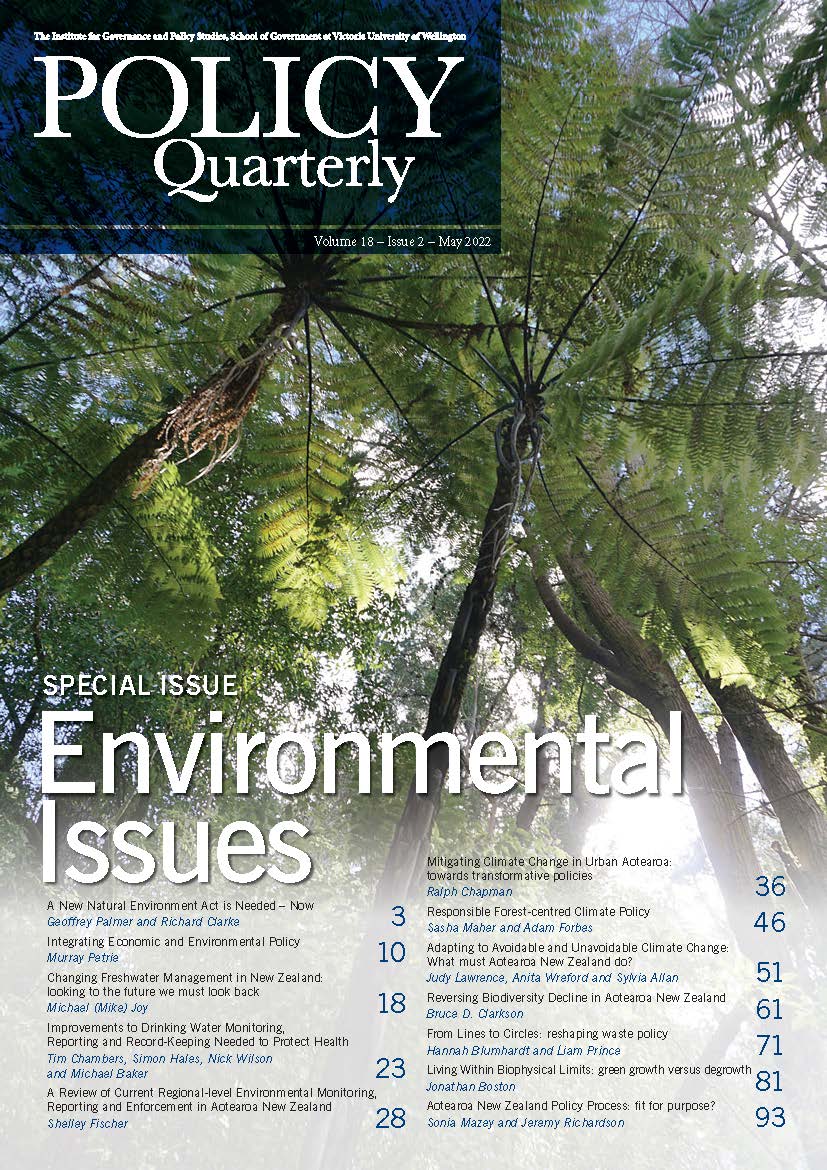Integrating Economic and Environmental Policy
DOI:
https://doi.org/10.26686/pq.v18i2.7569Keywords:
Environmental reporting, Environmental targets, Mainstreaming, Fiscal policy, Wellbeing budgets, Green budgetingAbstract
Integrating environmental policies into economic policy making is vital for environmental sustainability. This article explores three key
integration mechanisms: enhanced national state of the environment reporting, expanded environmental target setting, and mainstreaming the environment in fiscal policy and the annual budget cycle. The article discusses environmental reporting, resource management and wellbeing budgeting in New Zealand, including recent reviews and proposed reforms. It outlines the rapidly developing international practices in green budgeting. Entry points are identified for operationalising the current wellbeing budgeting framework by progressively exposing environmentally harmful fiscal policies, highlighting win–win tax and expenditure policies that are good for both the environment and the economy, and exposing trade-offs for more transparent deliberation.
Downloads
Downloads
Published
Issue
Section
License
Permission: In the interest of promoting debate and wider dissemination, the IGPS encourages use of all or part of the articles appearing in PQ, where there is no element of commercial gain. Appropriate acknowledgement of both author and source should be made in all cases. Please direct requests for permission to reprint articles from this publication to Policy-Quarterly@vuw.ac.nz.



